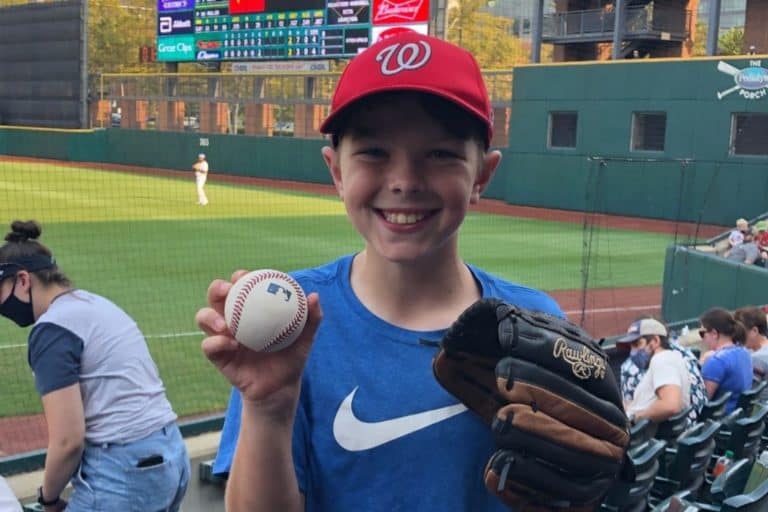How to Help Your Tweens & Teens with Online Learning

There are seven things we can do as parents to help our teens and tweens with online learning, whether it’s completely remote or hybrid. These things will build skills that will benefit our kids for a lifetime, but they’ll also lower the stress and tension in our homes in the short term.
Turns out watching my child transition to middle school feels almost as much like a terrifying cliff dive as actually going to middle school myself.
My logical brain understood that my junior high kiddo wouldn’t have the same hand-holding and one or two main teachers anymore. But my mom brain still wants to explode at the absurdity that I don’t know his teachers’ names and might still not know all of them by the end of this school year.
My logical self knows that my son isn’t all that different than he was three months ago. But he’s grown four inches in the last year (four more inches and he’ll be looking me in the eye at 5’6’’). He also sounds like a mini-man and IS IN JUNIOR HIGH…so I’m officially hitting a new level of fear of the Internet, Tik Tok, 13-year-old girls that look like women and all mood-altering substances.
And the cherry on top? COVID. Remote schooling.
We’re learning Schoology and SeeSaw, installing a whole house mesh Wi-Fi system, and figuring out how to manage three kids on Zoom calls and messages from two school buildings while my husband and I both try to do our actual jobs on a daily basis.
Kristie and I BOTH ordered this TP-Link Deco Whole House Mesh Wi-Fi System this week after realizing that four and five people doing work and school online from different locations in the house was taxing our Wi-Fi.
True story: the day schedules were announced and school supply lists were posted, I texted back and forth (a lot) with the daughter of a family friend who is one year above my son in school. I needed her to explain to me what the heck was going on.
What calculator did we need?
Who was the good Spanish teacher?
What the heck is “advisory” period?
I would be embarrassed if this wasn’t so darn funny.
What was my son doing while I stress-texted this responsible 13-year-old family friend? Probably playing Brawl Stars or Clash of Clans or taking pictures of the dog for his iPhone background.
It’s time for me – as a mom and often a control-freak – to face a few facts so that I can do the right things to help my tween and teen sons with online school.
It’s natural and healthy for teenagers to start moving toward independence and leaning more on peers. The tricky part is that teens’ executive functions skills – the parts of the brain needed to work toward goals and accomplish tasks – have a ways to go.
Kids’ executive functioning skills aren’t really done developing until about age 25 (and that’s if someone teaches them). Outside factors like stress, lack of sleep, lack of exercise, sadness and loneliness weaken executive functioning even more. Moms of teenagers everywhere say “Thanks for nothing, COVID!”
But the upside is that the brain is like a muscle – when we work it, it gets stronger. I’ve decided I’m going to trust my kids’ teachers with the academics, and I’m going to focus on flexing my kids’ brains in the area of executive functioning (I’m using the 8 pillars outlined by clinical psychologist Dr. Adam Cox):
-
Initiation
Translation: showing motivation & doing things without being nagged -
Flexibility
Translation: reading the room and rolling with the punches -
Attention
Translation: ignoring distractions when it’s time to focus -
Organization
Translation: understanding that chaos derails progress & causes stress -
Planning
Translation: respecting the importance of time, clarifying priorities, meeting deadlines -
Working memory
Translation: retaining information and truly learning -
Self-awareness
Translation: perceiving how others see you and making purposeful choices -
Regulating emotions
Translation: reacting appropriately to a situation
I’m a teacher myself, so no disrespect intended when I say that if my children master this set of skills by the time they leave my house but skimp a little on math or English or history knowledge – I’m ok with that.
There are seven things we can do as parents to help our teens and tweens with online learning, whether it’s completely remote or hybrid. These things will build our children’s executive functioning skills (hooray for long term benefits), but they’ll also lower the stress and tension in our homes in the short term.
1. Hand Over Control
This one goes out to all of my fellow Type A moms because it hurts me as much as it hurts you. We mean well, but hovering over our teens and their online learning has consequences. (We’ve got another post with the secret to the most successful Type A moms if you don’t believe we get how you think.)
A great analogy in the article Hovering at Home: How Well Intentioned put this in perspective:
“Picture your child moving through their classes during a typical (pre-COVID) school day. Now imagine what would happen if you were standing in the back of the classroom, prompting them whenever you felt they were off task, not paying attention, or getting distracted. Would your presence distract them, make them self-conscious, and/or possibly make them less likely to participate? Would you want your parent standing in the back of your classroom monitoring you all day?”
We’re stunting our teen’s ability to build executive functioning skills if we do things for them or micro-manage when and how they do things. This might include:
- Writing things in your teens’ calendar
- Creating to-do lists for your teen
- Running around last minute to help your teen finish a project
- Emailing a teacher to ask a question for your teen
- Nagging your teen repeatedly about whether a paper is done, or a project complete
There are plenty of times when it’s appropriate to help. Jump down to numbers 2 and 3 for suggestions on when and how to jump in.
This article in Psychology Today talks about how much research supports that “healthy, self-disciplined, motivated teenagers have a strong sense of control over their lives.” It talks about establishing age-appropriate rules as a family and then giving kids freedom to make their own decisions within those boundaries.
Rules will need to change as kids get older, and more and more decision-making can be handed over as teens near adulthood.
2. Encourage Problem Solving
I teach college students, and I’m sometimes frustrated and discouraged by the number of students who didn’t develop a sense of resourcefulness before heading off to college. I’ll estimate that 50% of all of the emails I get from students would be answered if they re-read the syllabus or Googled the question. Another 25% would be answered if they asked a classmate.
News flash: employers want to hire problem-solvers. We’ve never before in history had access to the sheer magnitude of information we now have at our fingertips thanks to Google, Facebook and YouTube. We need to help our tweens and teens learn that the first step in solving a problem is to check their own resources.
And then we can teach our kids the second step of reaching out for help and answers. Tweens and teens should learn how to:
- Make a phone call to an adult to ask a question (I have a friend who realized her teenage niece “didn’t feel comfortable” calling a restaurant to order takeout. She was floored. She forced said niece to face her fears and order the dang Chinese.)
- Write a respectful email that addresses the person by name, uses complete sentences and ends with some kind of salutation like Best or Thanks or Sincerely. This requires a solid understanding of the differences between email and texts. Between talking to friends and talking to adults or strangers.
- Reach out to a teacher to ask a question after making a good faith effort to answer the question on their own.
- Ask friends when a homework assignment is due or whether they figured out the tricky equation if they’re not sure. Friends are not just there for fashion/video game/Tik Tok/gossip conversations.
3. Teach Time & Project Management
We can trade in the hovering and nagging about daily tasks for a focus on bigger picture skills like time and project management.
I appreciate that our elementary school helps develop time management and organization by requiring planners in both third and fourth grade and making them part of students’ required homework. In third grade, students fill out when they have spelling tests or homework due and they log nightly reading homework and need to get a daily sign-off from parents. In fourth grade, students need to maintain their planner but they aren’t required to get a daily parent signature.
We’re currently in the process of finding a process that works for my seventh grader. I did a tutorial on using Google calendar and added him to all of the family calendar items that include him. He woke up to a deluge of notifications about soccer practices and youth group meetings that were being added to his calendar.
Kristie and I also both whole-heartedly support writing things down as a way to remember. Research in the journal Psychological Science found that students who take notes by hand rather than on a laptop remember it much better.
My son has a print calendar and is considering the best way to use it for assignment due dates. Kristie bought both of her sons this student planner and they love it.
Other opportunities to teach management:
- Have an email training session and teach your teen how to use folders and flags to keep email organized. Help them set up key email accounts be easily accessible on their phone and send them needed notifications.
- If your teen has a big project for school, help them make a list of the tasks it will require and assign by-whens to the smaller tasks to ensure the project gets done on time.
- Talk to your teen about creating and following a packing list as you get ready for vacation.
- If you have errands, ask your teen to help you think about the most efficient route or order of stops.
- If your teen wants to save for a big-ticket item, help them list ways to earn money and plot out weekly or months goals for earning the money by a certain date.
- If your teen has a lot to do or seems stressed, have a conversation about priorities. Have them write down what they need to do and help them process through which three things need to happen first so they know where to turn their focus.
- Encourage your teen to try time-boxing. They can set a timer for how long they think a task should take and do their best to finish within that window. Explain that the goal isn’t to cause stress, but to prevent stalling and create some urgency as they race against the clock.
4. Identify and Avoid Danger Zones
A big part of effective time management is an awareness of the things that become black holes for your time. If you struggle with this yourself, check out our post on the top way to get more done each day.
It’s important to have a conversation with teens about areas they recognize as time-sucks right now in their lives, even though these things may change over time. Black holes are often things like video games, social media, YouTube, Netflix or even extended text conversations.
All of those things in moderation can be helpful for lowering stress and unwinding. But they’re also hard to stop once you start, so they can eat up time that should be earmarked for more productive things and can throw a schedule wildly out of balance.
Have honest discussions with your kids on ways you struggle with this and your own black hole activities (we all have them!) and share some best practices:
- Encourage teens to stay away from black hole activities until the day’s important tasks (that could be homework, chores or checking in with a friend) are done.
- Help teens think up front about setting limits on black hole activities and monitoring when they hit those limits.
- Remind teens that things like having a cell phone, playing video games and hanging out with friends are still privileges and not rights. Growing up and gaining privileges also requires more mature time management and responsibility.
- Teach teens that physical activity and fresh air may not be assigned tasks or black hole activities, but they are NECESSARY for good health and good attitudes. Encourage them to show responsibility by factoring those into their daily schedule just as much as homework and chores before jumping into a black hole.
5. Don’t Fear Failure
Our little mini-me’s aren’t us. We didn’t make the right choice every time, and neither will they. We might be able to share a little wisdom and protect them from a few bad choices, but there’s no way to make their path straight and simple. Pretty sure COVID is evidence of that.
We’re working so hard during this mask-wearing, remote-learning, social-distancing time to teach our kids to be resilient and positive, and there will be times they nail it and times they fall short. Failure isn’t the enemy, it’s the teacher.
Kristie and I talk a lot about whether our kids have it too easy. They live in suburban America with plenty of food and plenty of money and plenty of luxuries. They’ve had some challenges, but nothing like kids in so many parts of the world face on a daily basis.
And if we shield and protect them from failures and challenges now, what life skills are we really building? We’re playing a short-term, immediate gratification strategy when we should be playing a long game to raise the adults we want to see.
If you know the StrengthsFinder assessment, Kristie and I both have Achiever in our top 3. We’re Type 3s on the Enneagram – Success-Oriented, Excelling, Driven and Image-Conscious. We don’t like to lose and we don’t like to fail. It doesn’t feel good to see or let our kids fail either, so it’s going to take a conscious effort on our part to not see our kids’ mistakes as failures – on their part or on ours.
Making mistakes is a necessary part of learning. Mistakes are evidence that we’re trying. They are opportunities to learn something and then do better next time.
6. Give More Encouragement & Less Criticism
Our loving guidance as parents can quickly feel like criticism to our teens. The teenage years can be awkward and stressful and confusing, and our kids need reminders that we’re on their side even though we don’t agree with their every choice and mood.

Kristie left this adorable care package out for her boys on the first day of school with an encouraging note that back to school 2020 kinda succs (see the succulent?!), but that it will be ok. I borrowed her idea.
But we can catch our tweens and teens doing good and let them know we notice with purposeful praise. We can build in incentives for positive attitudes and choices and then deliver on those promises. These can even be quick and simple rewards for things like staying focused during a challenging class or turning in all of a day’s homework on time.
A little extra screen time, a small Frosty or even a handwritten note help reinforce those good behaviors.
7. Encourage Reflection
Today’s families live busy and fast-moving lives (well, we did before COVID at least). An important lesson for our kids is the power of stopping to reflect and ask ourselves why did something work or not work? Where did a project go right or wrong? What did I learn from that experience?
The same goes for online school. You can build a few minutes into your daily routine to ask your teen whether they completed the day’s assignments and then ask questions like:
- Did your assignments take you about as long as you expected?
- How did you feel about the work you turned in?
- What was most challenging part of the day? What made it challenging?
- What was your biggest win today, or something you just felt good about?
You can also create reflection times at the end of bigger projects:
- How do you feel about your final project?
- What aspect do you feel is strongest?
- Are there things you might do differently next time?
- What was unexpected about the whole process?
How is online school going with your tweens and teens? What are you doing that’s working well? We would love to hear!!











